Where we resume talk of the recent roadtrip.
After waking up not once, but twice in Curanipe, we finally headed out into our day. We went back through Pelluhue, where it looks like we might have found better housing and then, having picked up a Germán, a senior in high school standing out in the insistent rain in a waterproof suit, in an attempt to catch a bus or a ride to visit his ailing grandmother in the hospital, we drove down to Cauquenes. Here is what is one of the prettiest stretches of highway I’ve seen in Chile. The overgrown yellow-flowered aromos, the eucalyptus, the pines, the mist, the layer upon layer of smaller and bigger hills. New England on drugs. I’d gladly go back to check out the reserve “Los Ruiles.” It must be spectacular, but the weather was not with us this day. Plus Germán had to get to the hospital.
From here we drove back down to the coast, snapping pictures of houses on a hillside reminiscent of closeby Valparaíso, or maybe vice versa. We went through the fairly large metropolis of Tomé, with the goal of visiting (and eating lunch in) Dichato.
Dichato is a small beachfront town of about 3,000 inhabitants, a very closed white sand cove, which used to enjoy a summer tourism boom (mostly from nearby Concepción). It’s also the town that, if someone says they’re from there, makes peoples sweep their hand up to to cover their mouth as they gasp. Dichato is where the tsunami generated after the February 27th, 2010 Chile earthquake swept away a large part of the flat part of the town, taking many houses, buildings, roads, and ultimately hundreds of lives back into the ocean. It’s one of Chile’s great tragedies, how the call to evacuate was not made, and now, over a year later, how rebuilding is slow, and there is a struggle between those who want to have their homes rebuilt in their same (delicate) position, and government efforts, which have focused on small wooden homes up in the hills surrounding Dichato. There have been a series of somewhat confrontational protests in Dichato itself, and smaller, solidarity-based protests in other parts of Chile in recent days.
We didn’t ask anyone anything in Dichato. In fact, we didn’t speak to anyone at all, except to order lunch at a spot called “La Picada” (snackbar/restaurant)right on the water which had been rebuilt with federal funds. There were an alarming number of businesses in this area called “Zona 0” which is Spanish for “ground zero.” You don’t know what to say in a case like this. There’s no such thing as tourism in a disaster zone. It’s not yours to gawk at, and there’s little you can do to help. But I still wanted to go. I had to know what people were talking about when they talked about Dichato.
We ate lunch with little fuss, fish and bread and shrimp and a surprisingly good homemade ají (spicy sauce for putting on bread), and the proprietor chased me outside with Rs cigarette and lighter he’d left on the table when he went to the restroom. Son del caballero (they belong to the gentleman), he said.
Later on in the trip, out of Concepción, after spending the night in a residencial called “Antuco” (which is another one of Chile’s tragedies, though the hostel was named for the volcano, not the blizzard that killed 45 young military recruits), we would pick up another hitchhiker. Omar is a sixty (or maybe seventy)- something self-professed (and possibly self-taught) “bone doctor,” headed to Chillán to help heal a man whose truck had flipped on the road to the termas (hotsprings), a road we would later traverse. The man who’d been in the accident (though not his truck) was okay, but he needed some chiropractic/osteopathic healing. This is where Omar came in.
“Sprains, strains, twists, bumps, bruises, all of it, I can heal it all. How’s your back?” he asked me. The truth is, my back is just okay. But I also couldn’t see myself laying flat for an offspec chiropractic treatment in the back of Chispy, our tiny red rental car. “Tiki-taka,” (super!) I lied.
Omar shouted from the back seat, first joking that his full name was Omar Sharif, then telling us about his healing powers, then talking about the weather, then where he was from. His home was in Caleta Llico, one of a few towns I’d have liked to have checked out, but which time, rain and Chispy’s toy-car size wouldn’t allow. I had actually wanted to get to Punta Lavapié, where I hear that you can see the cracks in the earth on an outcropping over the ocean, a memory of the earthquake that shows the planet’s strengths and weaknesses, and nobody’s ruined house or lost kin. I was thinking about thwarted plans, how things can seem far and near at the same time, and Omar’s bonehealing as his voice boomed from the back seat.
And then, out of nowhere, in a long breath that was quieter than the rest of his shouting, he told us that “tenía tres lanchas, tres lanchas les digo, pero me lo perdí todo. Me perdí la casa a puertas cerradas. Pero lo mas terrible es que perdí mi compañera de 43 años. Nunca la vi de nuevo.” (I had three boats, three boats I’m telling you. But I lost everything. I lost my entire house and everything in it. But the worst of all is that I lost my companion of 43 years. I never saw her again.)
And it made me sweep my hand up to cover my mouth so he wouldn’t hear me gasp.
I looked over to R to see how much of his concentration was on the road, and how much on the conversation. And then Omar fell asleep, waking up to give garbled instructions on how to get to the place in Chillán he needed to be as we drove past the highway exit. We finally got off the road, following his directions, which were clearer now that he was awake. And he jumped out of the car with a giant black umbrella we hadn’t even noticed he’d had with him, taking his stories and his bonehealing with him, but leaving me with the weight of wondering about his compañera of 43 years who he never saw again, and a hand pressed up to my mouth.

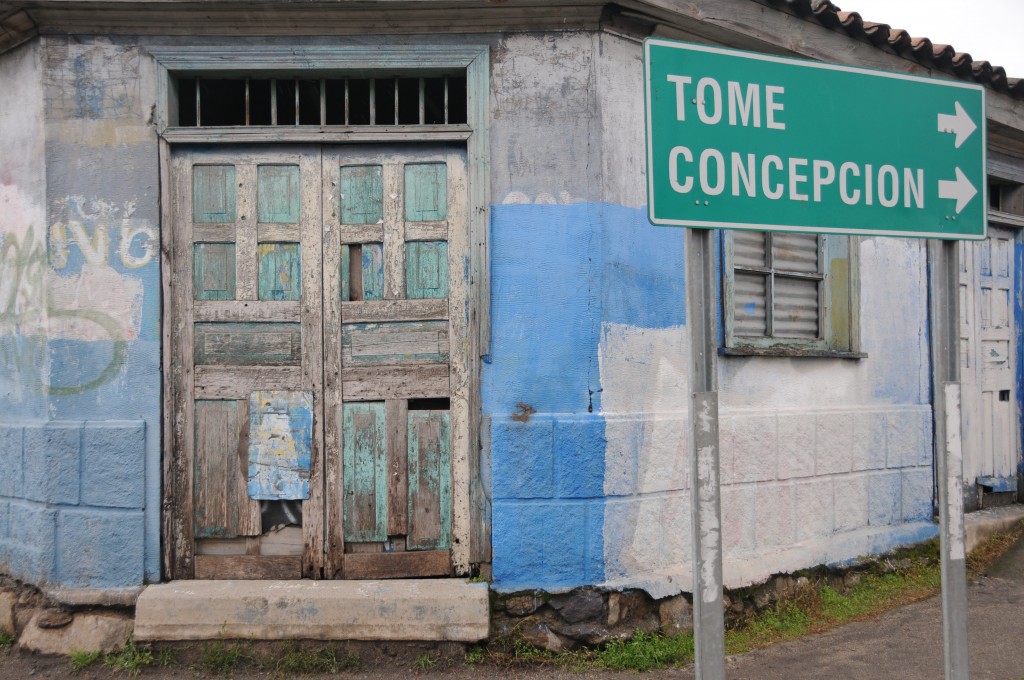
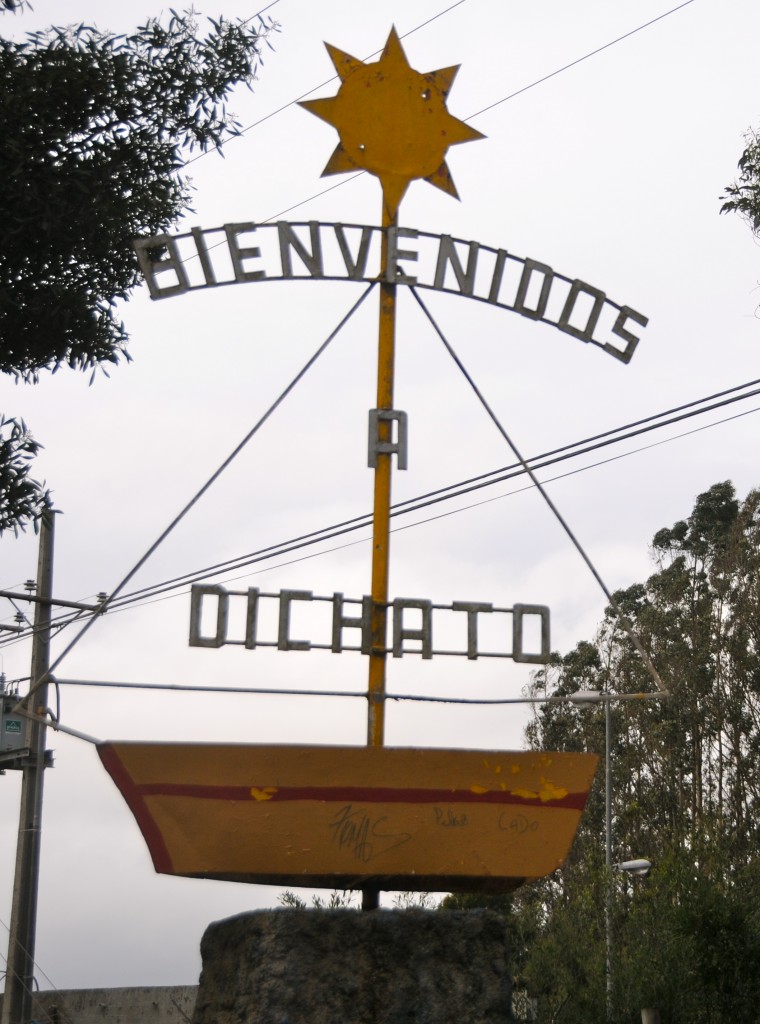
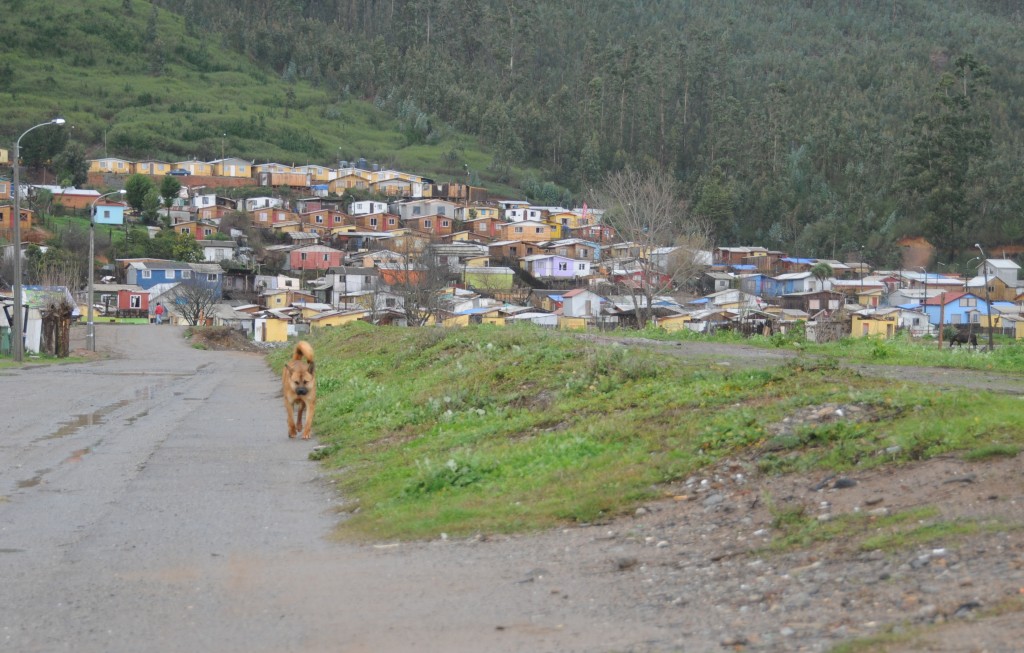
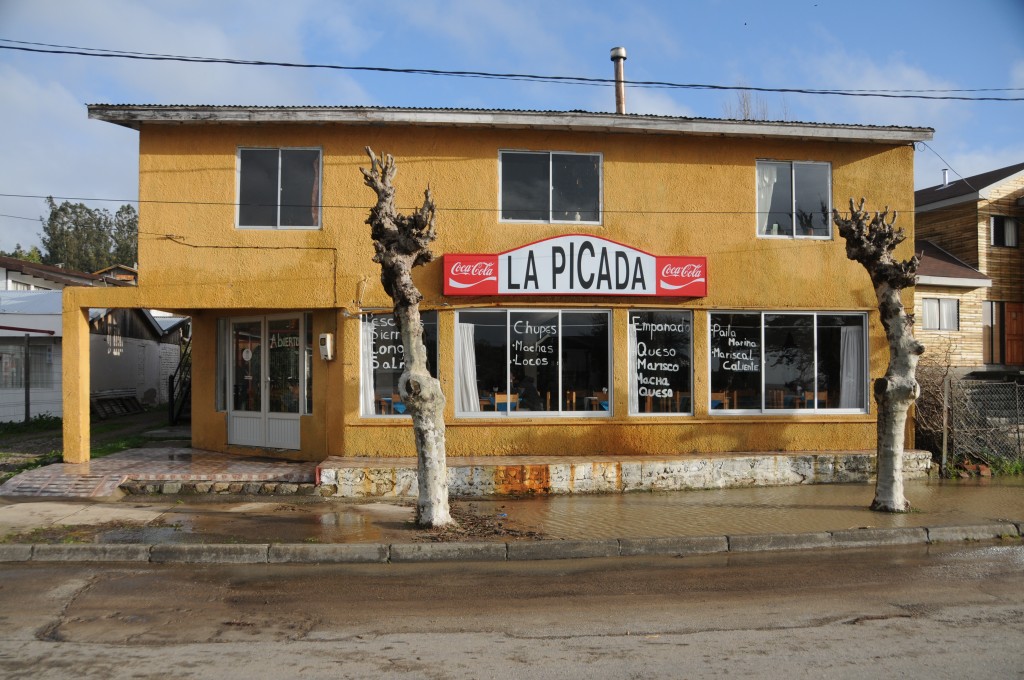
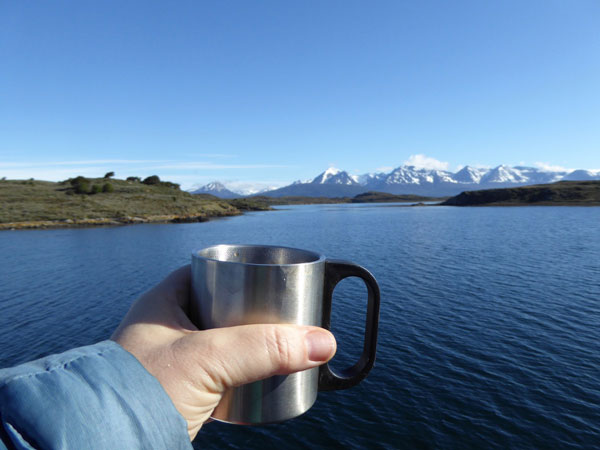
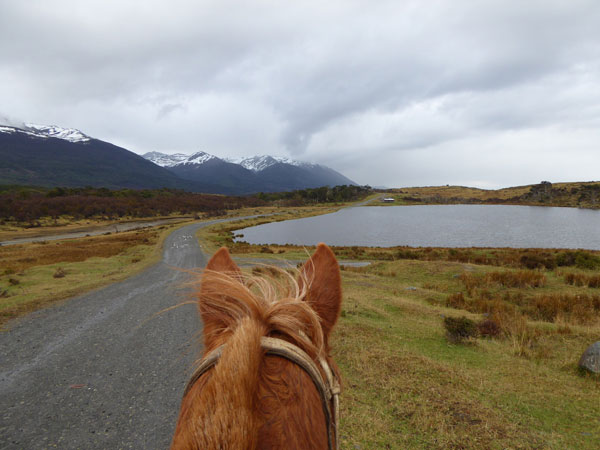
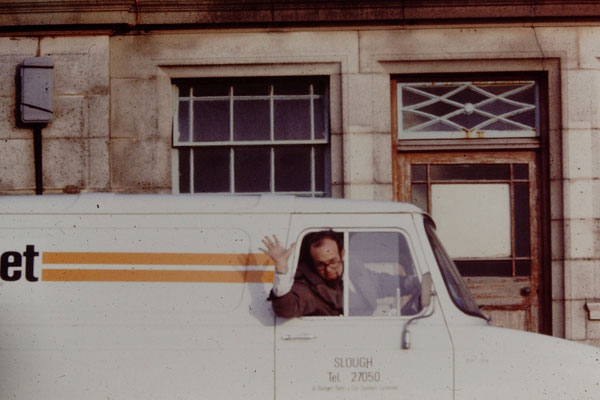
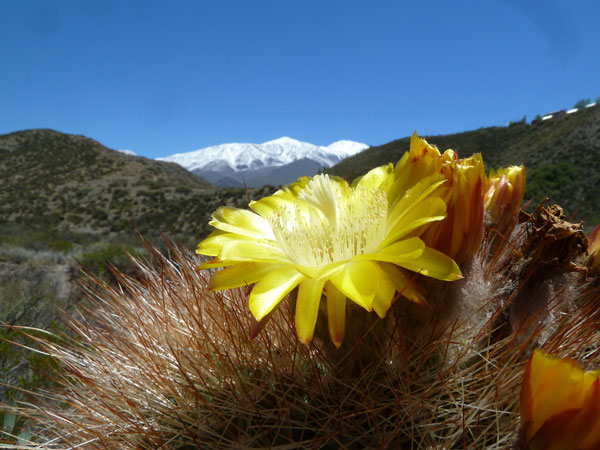
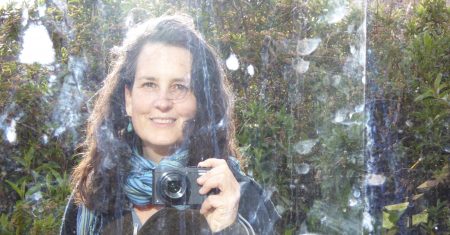
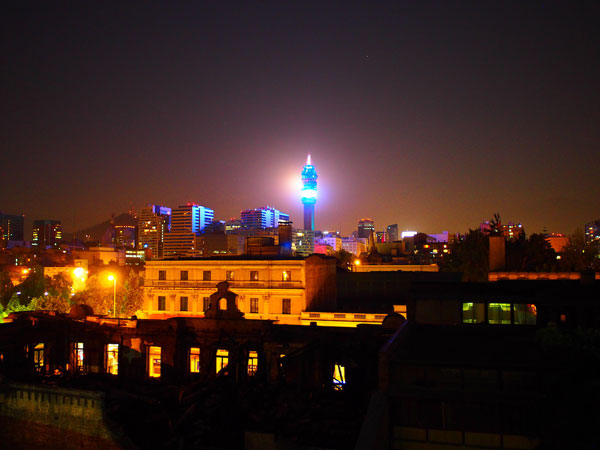
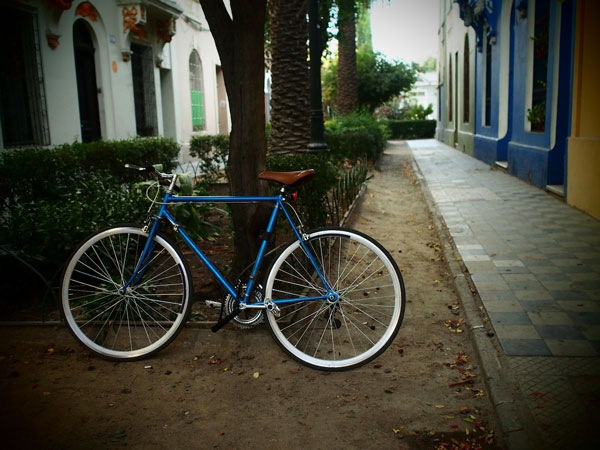


Love Omar. Really moving, Eileen.
Thanks, Sally. It was almost like he was never really there, he jumped out so fast. With his long black umbrella. I bet he never thinks of us again.
The story of Omar reminds me of a story my mother used to tell me about my grandparents in Oklahoma.
“Before the war,” my grandparents used to occasionally pick up hitch-hikers. One day, they saw an old man standing by the side of the road with his suitcase.
When they stopped the car, he opened the back door, threw his suitcase onto the seat and climbed in to sit on top of it.
He had a big pocketwatch that he pulled out every few minutes. Looking at the watch, he’d ask my grandmother, over and over, “What time is it, Sister? What time is it, Sister?”
After awhile, my grandparents realized that he had been silent for a bit. My grandmother turned around to look at him and discovered the car door ajar and the back seat empty.
He must have decided it was time to go because he had jumped out somewhere, miles back, taking his suitcase with him.
how thoroughly bizarre. I can see how Omar’s quick departure made you think of that. I was surprised myself, since he went from shouting to asleep to gone in such short order.
Thanks for sharing the story!
This reminded me of the Iraqi refugees I’ve been spending time with. You’ll know someone a while and then find out that they’ve lost children or siblings or their best friends or something, and lived through incredible trauma. I put my hand over my mouth and gasp sometimes too!
It seem so cliche, but it’s just what we do. When I was working in the states with immigrants from all over the world, I occasionally heard gasp-worthy stories as well. I hope I never grow inured to them.
Great story Eileen–nicely told! I am trying (and failing) to remember the name of the bone healer’s trade in Chilensis. People swear by them!
he didn’t call himself a bonehealer, it was just a long, long stream of word, esguinces, torsiones, quebraduras, contusiones, etc. And then he said he could fix them all. I don’t know the word in question, either, but let me know if you think of it.
Eileen, this was beautifully written. It’s sad to think of all the Omars out there who are quietly still trying to put their lives back together somehow.
Thanks, Emily. It was an incredible combination, looking for the tsunami and finding nothing (emotionally) and then finding it (or a survivor) in the back of our car.